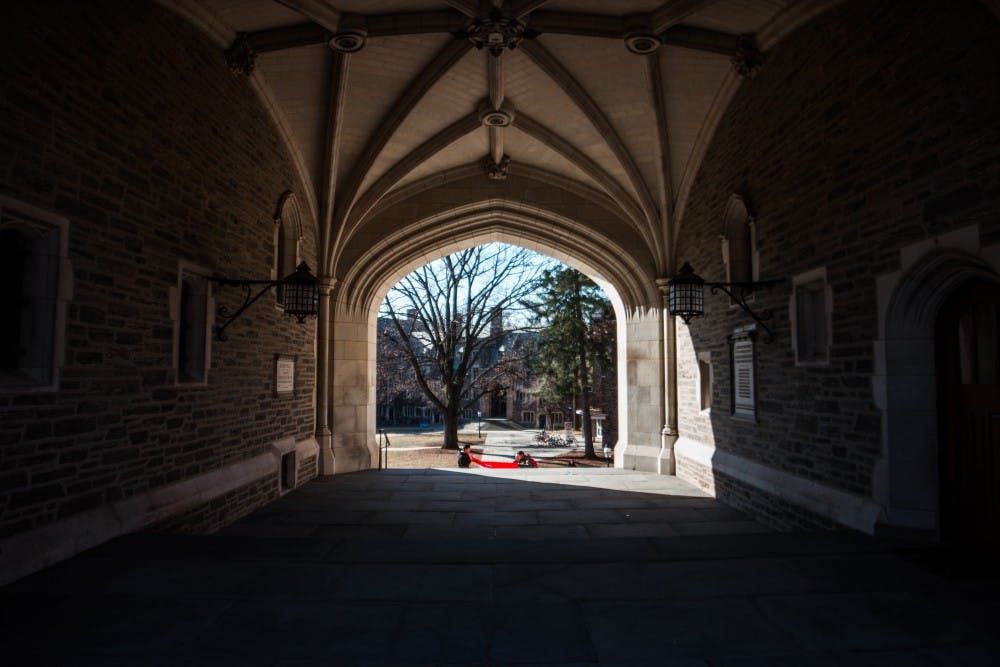We are in the middle of winter, and it is no secret that the University is hesitant to cancel class during dangerous weather.
To an extent, that is understandable. Students and donors pay significant sums each year so students can attend class, and the University is paying professors to, in part, show up and teach these classes. With some courses meeting only 12 times a semester, a single missed class can be disruptive to the whole course. It is not, however, a binary choice between missing class and risking harm to students and faculty by having them walk around campus in a snowstorm. It is essential that the University finds a solution to this dilemma before any severe weather events occur — it would be unwise to hold off on discussions about the topic until we know a storm is coming.
Nearly one year ago, I wrote a column expressing dismay at the University’s decision to not cancel class early enough during an nor’easter, which caused serious hazards around campus. That column explained why the University should err on the side of caution when faced with severe weather events.
There are alternatives to canceling class — using Blackboard to upload a recorded lecture by a professor and using Skype or Google Hangouts to make up for precepts are two that come to mind.
The former would entail a professor recording the same lecture they would have given in class and uploading it in time for it to be viewed by the students before the next lecture. Recorded lectures will never be as useful as in-class lectures, especially considering the lack of audience participation and the inability to use a chalkboard. Regardless, these lectures are better than having none at all. Professors with concerns that students may not actually view the lecture could just require them to send in a paragraph or two commenting on the material. Even though in-person lectures are preferable, recorded lectures are a viable alternative when weather simply makes being outside too risky.
However, some seminars, language courses, and precepts require participation from students, so merely uploading the lecture to Blackboard would be insufficient. In these circumstances, the preceptor or professor, along with the students, could have a Skype or Google Hangouts session at the regularly scheduled meeting time. It is not as personal as meeting face-to-face, but it is better than not being able to meet at all.
Students could still discuss the week’s material and receive instruction and assistance from their fellow students and the instructor. Unfortunately, labs and precepts involving University equipment or producing something physical to turn in would still not be possible using online communication. For these situations, it would be best to try and reschedule the meeting for as soon as possible. There is also a final alternative to canceling classes — pushing classes into reading period, subsequently extending reading period itself as well as the exam period.
Pushing classes back complicates scheduling too much to be a viable solution to snow days. Reading period is essential to completing Dean’s Date assignments as well as preparing for examinations, so pushing even one day of class into reading period would necessitate prolonging its duration. A longer period for exams would follow, which would push back the latest date a student could leave campus. This shift could interfere with jobs, internships, and travel plans, especially if they had to be made well in advance of the semester’s end.

Scheduling issues would also be present throughout the rest of the semester before reading period. Some courses choose to bring in guest lecturers, and they may be unable to attend if their proposed lecture time is pushed to a later date. Courses that plan trips may need to cancel them if students do not receive the proper amount of instruction by the scheduled departure date.
Such massive rescheduling endeavors would unnecessarily strain the University’s resources and faculty when it would be far simpler for professors to record lectures and to use Skype for precepts.
I think few would argue that these alternatives to in-person lectures would be superior to the traditional classroom experience, but it is clear that they are better alternatives to both missing class altogether and risking serious bodily harm to students. There are times when we just have to make do with what is available to us at the given moment — so while it will never be an easy decision to cancel classes, we should not act as if switching a day of classes for recorded lectures and a bit of rescheduling for labs is not worth the safety such a cancellation ensures. Let us adopt these changes now instead of repeating the disaster from last March’s nor’easter.
Hunter Campbell is a junior from East Arlington, Vt. He can be reached at hunterc@princeton.edu.









